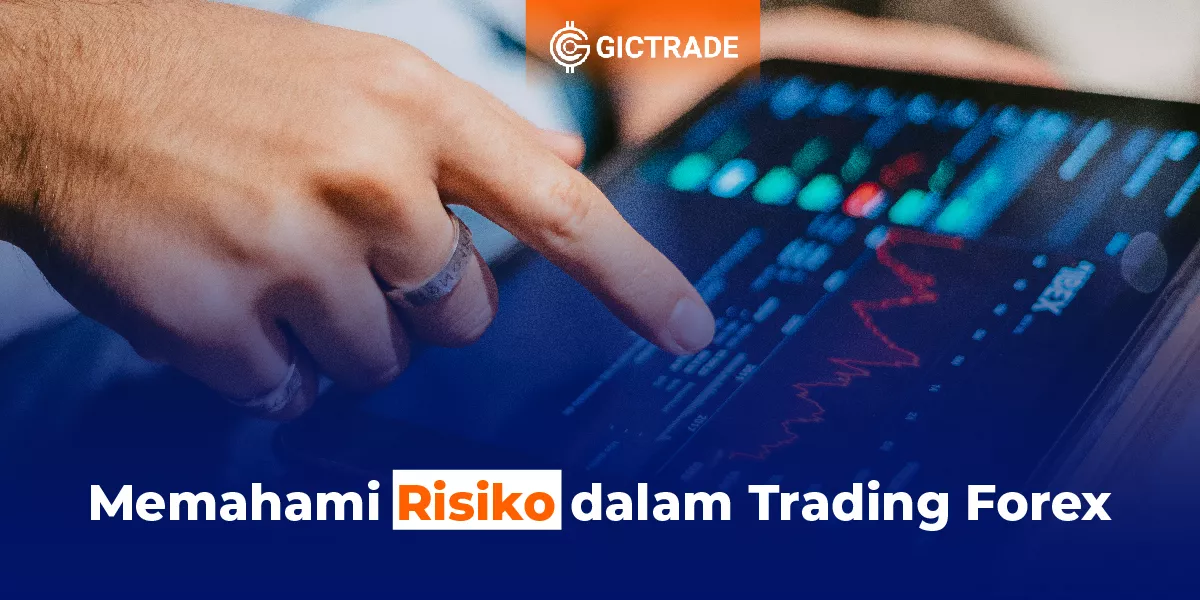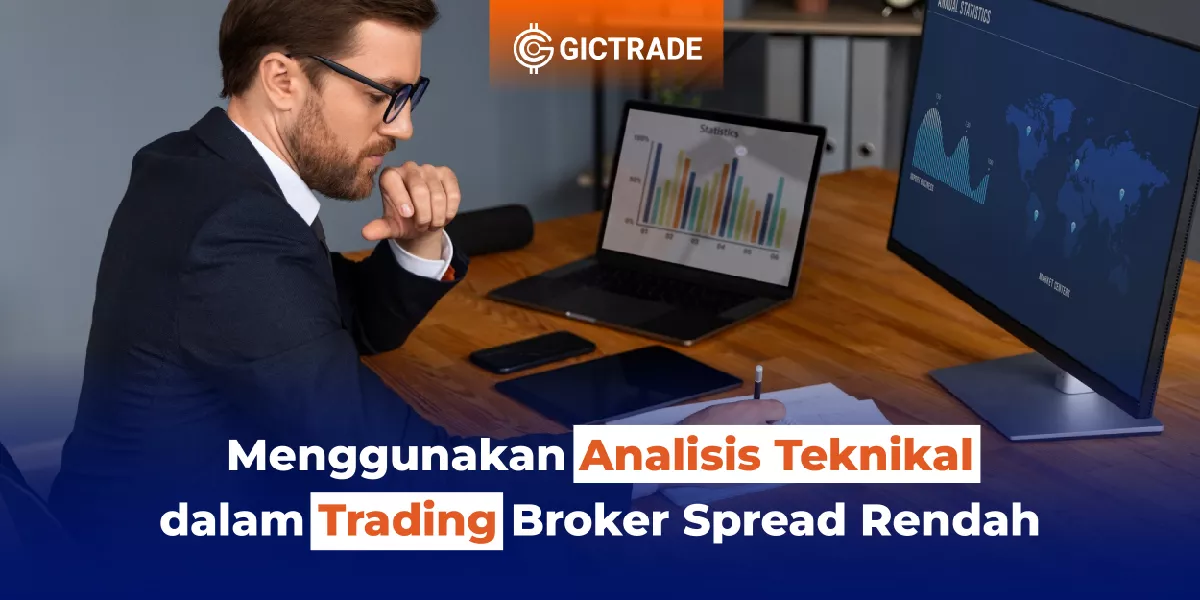Understanding Risk in Forex Trading - In an increasingly complex financial world, forex trading has become one of the most popular investment instruments. Forex trading offers the potential for high returns, but also involves significant risks. To become a successful forex trader, it is essential to understand the risks associated with this activity.
In this article, we will discuss in depth the risks in forex trading and provide practical guidance on how to manage them wisely. We will explain the various risks associated with forex trading and provide advice on how to mitigate them. Let's start by understanding the risks in forex trading.
Table of Contents
- Understanding Risk in Forex Trading
- FAQ's (Frequently Asked Questions)
- Q: How to reduce risks in forex trading?
- Q: How much risk should I take in forex trading?
- Q: Is forex trading suitable for everyone?
- Q: Apakah saya perlu menggunakan leverage dalam trading forex?Q: Do I need to use leverage in forex trading?
- Q: How can I manage my emotions when trading forex?
- Q: What should I do if I experience a loss in forex trading?
- Conclusion
Understanding Risk in Forex Trading

In forex trading, risks are an integral part of the trading process. Understanding these risks is an important step in protecting your investment. Here are some of the risks that are often associated with forex trading:
1. Market Volatility
Market volatility is a major risk in forex trading. The forex market is highly volatile and can move rapidly in a short period of time. Sudden and unexpected price movements can result in significant losses if not managed properly. It is important to understand that market volatility is a natural part of forex trading and can affect your trading performance.
2. Systematic Risk
Systematic risk is the risk associated with overall economic, political, or financial conditions. Factors such as government policies, financial crises, or changes in interest rates can affect the forex market as a whole. These risks are difficult to control individually and can have a significant impact on your trading.
3. Credit Risk
Credit risk is the risk associated with another party failing to meet payment obligations. In forex trading, credit risk is associated with the forex broker or financial institution where you open a trading account. It is important to do your research and choose a trusted and reputable forex broker to reduce credit risk.
4. Liquidity Risk
Liquidity risk is the risk of being unable to sell or buy an asset quickly and at a reasonable price. Liquidity risk can occur when there is an imbalance between supply and demand in the market. In forex trading, liquidity risk can affect your ability to exit a trade at the desired price.
5. Leverage Risk
Leverage risk is one of the significant risks in forex trading. Leverage is a feature that allows traders to control trading positions that are much larger than their capital. In simple terms, leverage gives you the opportunity to "borrow" funds from your broker to increase your purchasing power in the market.
While leverage can significantly increase potential profits, the risks associated with it can also increase by an equal amount. If used unwisely, leverage can lead to significant losses and even wipe out your entire capital.
One of the most obvious risks of leverage is the risk of overtrading. When traders have access to high leverage, they tend to be tempted to open larger and more trading positions. This can be a problem if traders do not properly consider the risks involved and are only focused on the potential profits.
In addition, leverage can also increase the risk of margin calls. A margin call occurs when a trader does not have enough funds in their account to cover losses incurred from an ongoing trade. In the event of a margin call, the broker may automatically close the trading position, and the trader may experience greater losses than expected.
It is important for forex traders to understand the concept of leverage well before using it. Traders should recognize the level of leverage that suits their risk tolerance and manage their capital wisely. In addition, it is advisable to always use good risk management, such as setting appropriate stop losses and not taking too much risk in a single trade.
To reduce leverage risk, traders can also consider using lower leverage. While lower leverage may limit potential profits, it will also limit the potential losses that can be incurred. Thus, traders can keep their risks under control and avoid excessive losses.
6. Risk Management
Management risk is the risk associated with poor management decisions in forex trading. This includes inconsistency in following a trading plan, the influence of emotions on trading decisions, and lack of discipline in managing risk. Management risk can lead to unnecessary losses and hinder success in forex trading.
One aspect of risk management is inconsistency in following a trading plan. Traders who are inconsistent in implementing their plans tend to get caught up in impulsive decisions and pay little attention to objective market analysis. They may be tempted to trade based on feelings or speculation without a solid basis. This can result in unnecessary losses and interfere with long-term success in forex trading.
In addition, the influence of emotions is also an important factor in risk management. Emotions such as fear, greed, and excitement can affect trading decision making. Traders who are too afraid or hesitant can miss out on potentially profitable trading opportunities. On the other hand, traders who are too greedy can open high-risk and irrational positions. Controlling emotions and staying calm in the face of market movements is the key to reducing emotional risk in forex trading.
Lack of discipline in managing risk is also part of risk management. Discipline involves following a predetermined trading plan, including setting appropriate stop loss and take profit levels. Undisciplined traders may ignore risk management rules and take risks disproportionate to their capital. This can lead to significant losses and hinder the growth of a trading portfolio.
To overcome risk management, traders need to adopt a disciplined and organized approach to forex trading. This involves creating a clear trading plan with predetermined entry and exit rules.
Discipline in following the plan and controlling emotions during trading is important. In addition, the use of risk management techniques such as setting strict stop losses and using position sizes proportional to capital can help reduce the risk of excessive losses.
In forex trading, patience, persistence, and discipline are the keys to managing risk well. Traders must respect their trading plan, stick to a proven strategy, and remain objective in their decision making. By managing risk wisely, traders can increase their chances of long-term success and avoid unnecessary losses in forex trading.
Manage Emotions in Trading to Stay Stable, Trade with GIC Now!
If you are a beginner trader and are still hesitant to make a deposit, this is certainly natural, psychologically you are not ready to trade or invest. GICTrade is a forex trading platform owned by GIC. This forex trading platform brings together traders and market makers. You as a prospective customer can certainly choose between the two, namely becoming a trader or a market maker.
In addition, GIC also has the GIC Social Trade feature. By using the Social Trade feature, you as a trader can become a follower who can follow the actions of the masters in trading, either through copy trade (following the trading actions of the masters) or reverse trade (doing the opposite, for example: the master makes a buy, you make a sell).
This feature makes it easy for beginner traders to still be able to learn forex trading but still make a profit. By opening a demo account at GICTrade, you will immediately learn and get to know the MetaTrader 5 application because GICTrade uses the MT5 forex trading application to make transactions. Let's learn forex trading starting now!
Of course, you can also trade on the GICTrade application with its newest feature, the ECN account, enjoy the advantages of the newest feature with the lowest spread starting from 0!
FAQ's (Frequently Asked Questions)
Q: How to reduce risks in forex trading?
A: There are several steps you can take to reduce the risk in forex trading. First, do your research and choose a trusted forex broker. Second, set a risk limit and do not exceed the specified limit. Third, use good risk management, such as setting stop losses and take profits. Finally, keep practicing and learning about forex trading to improve your understanding.
Q: How much risk should I take in forex trading?
A: The amount of risk you should take in forex trading depends on your risk profile and investment objectives. It is important to evaluate your finances and set an appropriate risk tolerance. As a general rule, it is not recommended to risk more than 2-3% of your trading capital in a single trade.
Q: Is forex trading suitable for everyone?
A: Forex trading is not suitable for everyone. It involves significant risks and requires sufficient knowledge, skills and experience. Before starting forex trading, it is important to understand the risks involved and carefully consider your financial situation.
Q: Apakah saya perlu menggunakan leverage dalam trading forex?Q: Do I need to use leverage in forex trading?
A: The use of leverage in forex trading is a personal choice. Leverage can increase potential profits, but it also increases the risk of loss. If you decide to use leverage, make sure you fully understand how it works and manage your risk wisely.
Q: How can I manage my emotions when trading forex?
A: Managing emotions is an important part of forex trading. There are several strategies that can help you manage your emotions, such as having a clear trading plan, being disciplined in following the plan, and not getting too caught up in short-term price movements. It is important to stay calm, objective, and think long-term when trading.
Q: What should I do if I experience a loss in forex trading?
A: If you experience a loss in forex trading, it is important to stay calm and not panic. Evaluate your trade and identify the factors that caused the loss. Learn from the experience and improve your trading strategy. Always remember that losses are a normal part of forex trading, and what matters is how you manage them and learn from them.
Conclusion
Understanding the risks in forex trading is an important step to becoming a successful trader. In this article, we have discussed the risks associated with forex trading and provided a step-by-step guide on how to manage them wisely. By understanding the risks and implementing good risk management, you can increase your chances of success in forex trading.
Always remember that forex trading involves significant risks and there is no guarantee of profits. It is important to do research, study and practice before engaging in real forex trading. With patience, dedication and the right approach, you can achieve good results in forex trading.
| Also Read : Trading Without Capital With Crypto Guaranteed Continuous Profits! |
 Last:
Last: 







